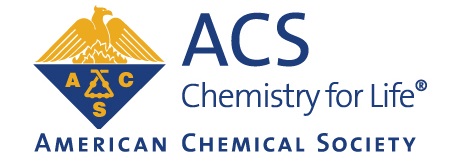Forensic Chemistry Accreditation
The Forensic Chemistry program at the University of Mississippi is FEPAC-accredited and ACS-certified, preparing students for success.
Forensic Chemistry Student Success and Enrollment
Our Program goals and educational objectives are to:
- Provide students a thorough grounding in math and sciences, the cornerstones of modern forensic science;
- Enhance student’s critical thinking and analysis skills, especially as it pertains to forensics;
- Instruct students on the various facets of forensics, including hands-on instrument training;
- Produce a technically skilled and educated forensic chemistry workforce for Mississippi and the nation.
To achieve these goals, our program:
- Maintains an innovative faculty that is committed to teaching a modern curriculum, critical thinking skills, and the different facets of forensics;
- Provides as much laboratory opportunities as possible for students to maximize their use of instrumentation and problem solving skills;
- Develops and enhance student’s presentation, technical, and problem solving skills;
- Promotes forensic-themed research projects using the latest technologies;
- Encourages students to participate in- and present research at- forensic meetings and conferences;
Promote defense of experiments through oral presentations that stimulate discussion among forensic majors; - Invites guests from different forensic backgrounds to give seminars and workshops on their areas of expertise;
- Takes students on trips to different forensic laboratories;
- Reinforces the importance of record keeping and written presentation skills utilizing word processors, spreadsheets, and graphing tools; and
- Teaches laboratory safety.
Accreditation and Certification
FEPAC Accreditation: The B.S. Forensic Chemistry degree at the University of Mississippi is accredited by the Forensic Science Education Programs Accreditation Commission (FEPAC).

ACS Certification: The addition of Chem 332, 401, and either 337 or 402 to the B. S. Forensic Chemistry curriculum satisfies the requirement for certification by the American Chemical Society.

Forensic Chemistry Internship
A 10-week internship at a state or federal crime laboratory is required for this degree. The internship provides the student with a real-life crime laboratory atmosphere to decide if this is truly the desired career path one wishes to take and also provides the crime laboratory with the ability to recruit the student for future employment into the laboratory.
Crime laboratories do not offer internships or permanent employment to students who have only marginal academic achievement, so it is crucial to maintain a grade-point average of at least 3.00 while enrolled in this program.
Forensic Chemistry Program Data
B.S. Degrees Awarded in Forensic Chemistry
| 2010-11 | 2011-12 | 2012-13 | 2013-14 | 2014-15 | 2015-16 | 2016-17 | 2017-18 |
| 4 | 6 | 8 | 17 | 12 | 12 | 9 | 23 |
| 2018-19 | 2019-20 | 2020-21 | 2021-22 | 2022-23 | 2023-24 | 2024-25 | |
| 18 | 18 | 9 | 22 | 14 | 9 | 8 |
Was prepared to assume the responsibilities of my chosen profession (2021-2025)
Was prepared to assume the responsibilities of my chosen profession (2021-25) | |||||
| Strongly Agree | Agree | Neutral | Disagree | Strongly Disagree | N/A |
| 63% | 27% | 8% | 2% | 0% | 0% |
Felt adequately prepared for graduate study in my major field (2021-2025)
Felt adequately prepared for graduate study in my major field (2021-2025) | |||||
| Strongly Agree | Agree | Neutral | Disagree | Strongly Disagree | N/A |
| 55% | 25% | 8% | 2% | 2% | 8% |
Forensic Chemistry Enrollment/Graduates Data
| Forensic Chemistry Enrollment/Graduates Data | |||
| 2021-2022 | 2022-2023 | 2023-2024 | |
| Full Time Students Enrolled | 95 | 79 | 59 |
| Graduates | 20 | 14 | 9 |
| Graduates with Job Offers | 12 | 6 | 4 |
| Admitted into Advanced Degree Program | 6 | 6 | 5 |
| Unreachable/No Response | 2 | 2 | 0 |
